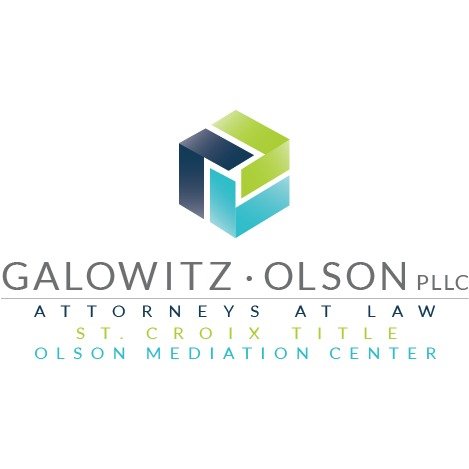Best Elder Abuse Law Lawyers in Minnesota
Share your needs with us, get contacted by law firms.
Free. Takes 2 min.
Or refine your search by selecting a city:
List of the best lawyers in Minnesota, United States
About Elder Abuse Law in Minnesota, United States
Elder Abuse Law in Minnesota encompasses a range of legal protections designed to prevent and address the mistreatment of elderly individuals. Elder abuse can include physical, emotional, or sexual abuse, as well as neglect, financial exploitation, and abandonment. Minnesota law seeks to safeguard adults aged 65 or older or those who are vulnerable due to physical or mental impairments. The intent is to ensure that seniors live free from harm, receive appropriate care, and have access to legal remedies when they are abused or at risk.
Why You May Need a Lawyer
A lawyer experienced in Elder Abuse Law can help in many challenging situations. If you or a loved one suspects abuse in a nursing home, assisted living, or by a caregiver, legal assistance may be necessary to investigate and pursue justice. Attorneys can also help when there are complex financial matters, such as suspected theft, fraud, or improper changes to wills and estates. Sometimes, families disagree about the care or finances of an elderly member, resulting in disputes that require legal resolution. Additionally, if a vulnerable adult has suffered harm and needs to recover damages or ensure their ongoing safety, professional legal representation is vital.
Local Laws Overview
Minnesota has several laws specifically crafted to protect elders from abuse. The key statutes are found in the Minnesota Statutes, Chapter 626.557, commonly known as the "Vulnerable Adult Act." This law requires mandatory reporting of suspected abuse, neglect, or financial exploitation of vulnerable adults by certain professionals, such as healthcare workers and social service providers. It covers a broad range of settings, including private homes, care facilities, and community programs. Enforcement mechanisms allow for criminal penalties against abusers and civil remedies for victims. There's also recourse through Adult Protective Services (APS), which investigates allegations and coordinates protective interventions.
Frequently Asked Questions
What is considered elder abuse under Minnesota law?
Elder abuse includes physical injury, verbal or emotional harm, sexual abuse, neglect, unwanted restraint, or financial exploitation of someone aged 65 or older or a vulnerable adult unable to protect themselves.
Who is required to report suspected elder abuse?
Certain professionals, such as healthcare providers, social workers, law enforcement, and facility staff, are mandated reporters and must report suspected abuse or neglect to appropriate authorities.
How do I report suspected elder abuse?
You can report suspected elder abuse to your county's Adult Protective Services or law enforcement. The Minnesota Adult Abuse Reporting Center (MAARC) is available to receive reports 24/7.
Can family members be held liable for elder abuse?
Yes. Family members who commit or allow abuse or neglect can be held legally responsible, both criminally and civilly, under Minnesota law.
What types of financial abuse are covered by Minnesota law?
Financial abuse includes theft, undue influence over finances or property, misuse of powers of attorney, improper use of funds, or any exploitation that benefits someone other than the elder.
What legal remedies are available for victims?
Victims can seek criminal prosecution of abusers, civil lawsuits for monetary damages, orders for protection, and other court interventions aimed at stopping abuse and preventing further harm.
If an elder is unable or afraid to report abuse, can someone else do it?
Yes. Anyone, including friends, family, neighbors, or professionals, can and should report suspected abuse if they have reasonable cause to believe it is occurring.
Are reports of elder abuse confidential?
Yes. Reports to authorities are confidential, and the identity of the reporter is generally protected, except in certain legal proceedings where disclosure is required.
What happens after a report is made?
Adult Protective Services (APS) or law enforcement will investigate the allegation, assess the elder's safety, and take appropriate steps, including court action if necessary, to address and stop the abuse.
Do elders have the right to refuse help?
In most cases, competent adults have the right to refuse services or interventions, unless a court determines they lack capacity to make such decisions due to cognitive or other impairments.
Additional Resources
Minnesota residents can access several state and local agencies for support and guidance, including:
- Minnesota Adult Abuse Reporting Center (MAARC)
- Adult Protective Services (APS) through the Minnesota Department of Human Services
- Ombudsman for Long-Term Care
- Minnesota Board on Aging
- County Social Services Offices
- Legal Aid Societies providing services to seniors
- Local law enforcement agencies
Next Steps
If you suspect elder abuse or need legal assistance, start by documenting what you have observed or experienced, including dates, details, and the names of anyone involved. Report your concerns to the Minnesota Adult Abuse Reporting Center or local authorities without delay. For legal protection, consult an attorney experienced in Elder Abuse Law who can guide you through your options, initiate the appropriate legal action, and help protect the rights and well-being of the elder involved. Many lawyers offer free consultations to help you determine if you have a case. Acting quickly is important to ensure safety and preserve evidence.
Lawzana helps you find the best lawyers and law firms in Minnesota through a curated and pre-screened list of qualified legal professionals. Our platform offers rankings and detailed profiles of attorneys and law firms, allowing you to compare based on practice areas, including Elder Abuse Law, experience, and client feedback.
Each profile includes a description of the firm's areas of practice, client reviews, team members and partners, year of establishment, spoken languages, office locations, contact information, social media presence, and any published articles or resources. Most firms on our platform speak English and are experienced in both local and international legal matters.
Get a quote from top-rated law firms in Minnesota, United States — quickly, securely, and without unnecessary hassle.
Disclaimer:
The information provided on this page is for general informational purposes only and does not constitute legal advice. While we strive to ensure the accuracy and relevance of the content, legal information may change over time, and interpretations of the law can vary. You should always consult with a qualified legal professional for advice specific to your situation.
We disclaim all liability for actions taken or not taken based on the content of this page. If you believe any information is incorrect or outdated, please contact us, and we will review and update it where appropriate.
Browse elder abuse law law firms by city in Minnesota
Refine your search by selecting a city.












